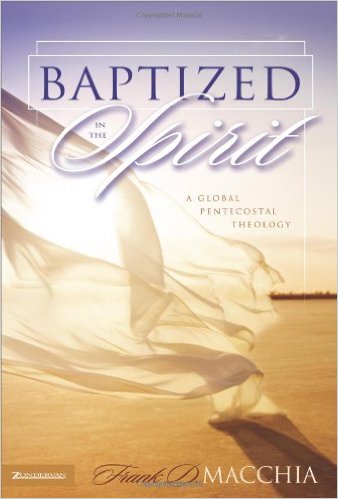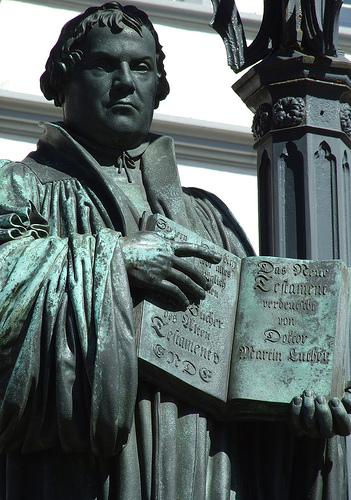 It is clear, from chapter nine, that God has chosen Saul to be king, in response to the people’s request or demand in chapter eight. He has identified Saul to Samuel, saying, “You shall anoint him to be prince over my people Israel. He shall save my people from the hand of the Philistines. For I have seen my people, because their cry has come to me” (9:16). The biblical text uses the word nāgîd (“leader”) rather than melek which is the usual word for “king.” Nāgîd has military connotations and could have been applied to any of the earlier judges (see Evans, 66), although Murphy suggests that the distinction between the two terms conveys the difference between one who has been appointed to a role but who has not yet entered into active service in that role; she likens nāgîd to the contemporary idea of “president-elect” (Murphy, 80). It is evident, however, that the military leadership noted by Evans is intended: Saul will bring Israel deliverance from the Philistines.
It is clear, from chapter nine, that God has chosen Saul to be king, in response to the people’s request or demand in chapter eight. He has identified Saul to Samuel, saying, “You shall anoint him to be prince over my people Israel. He shall save my people from the hand of the Philistines. For I have seen my people, because their cry has come to me” (9:16). The biblical text uses the word nāgîd (“leader”) rather than melek which is the usual word for “king.” Nāgîd has military connotations and could have been applied to any of the earlier judges (see Evans, 66), although Murphy suggests that the distinction between the two terms conveys the difference between one who has been appointed to a role but who has not yet entered into active service in that role; she likens nāgîd to the contemporary idea of “president-elect” (Murphy, 80). It is evident, however, that the military leadership noted by Evans is intended: Saul will bring Israel deliverance from the Philistines.
At the end of the chapter Samuel takes Saul aside in private in order to tell him what God has said, and it is with this that the tenth chapter begins. A question regarding the text itself arises in verse one. The NRSV translates the verse,
Samuel took a phial of oil and poured it on his head, and kissed him; he said, ‘The Lord has anointed you ruler over his people Israel. You shall reign over the people of the Lord and you will save them from the hand of their enemies all around. Now this shall be the sign to you that the Lord has anointed you ruler over his heritage (cf. also ESV; CEB; GNT)
while the NASB has more simply,
Then Samuel took the flask of oil, poured it on his head, kissed him and said, “Has not the Lord anointed you a ruler over His inheritance? (Cf. NIV; HCSB)
The difference is easily explained: the longer version reflects the reading in the Septuagint while the shorter reading derives from the Hebrew text. The Septuagint appears to reiterate 9:16. In both cases the word for ruler is, once more, nāgîd which fits the private nature of Samuel’s anointing; Saul’s public investiture will come later.
Samuel’s anointing has a sacramental character. He anoints Saul with oil, pouring it over his head—similar to the practice of anointing the high priest (see Exodus 29:7; cf. Psalm 133:1)—before advising Saul of several signs which will immediately follow. The oil itself has no spiritual or supernatural powers but is symbolic of the Spirit’s coming upon Saul which Samuel announces in verse six and which occurs in accordance with Samuel’s prophecy, in verse ten. Samuel anointed with oil but it is the Spirit’s presence and empowering which is crucial.
The coming of the Spirit is accompanied by a manifestation of prophecy—inspired speech, something not uncommon in the Old Testament (cf. Numbers 11:24-26; 24:2-3; 2 Chronicles 20:14-17). The analogy with the passage in Numbers 11 is particularly instructive: the coming of the Spirit is accompanied with prophecy but the Spirit’s coming is not, as it were, to make the recipients of his presence prophets; rather, the gift of the Spirit is given to equip the recipients for their administrative and leadership responsibilities, as is the case here. Nevertheless the prophesying does serve the purpose of identifying and encouraging those who have received the gift of the Spirit. Their experience confirms the divine call: Saul has been brought within the sphere of the divine call, assignment and work. His life has been incorporated into the divine activity and purposes.
The Spirit of the Lord will “rush upon” Saul (ESV) and so “possess” him (NRSV), with the result of the Spirit’s coming being that Saul will not only prophesy, but more importantly, “will be turned into another man” (v. 6). Later, in verse nine, it is said that God gave Saul “another heart.” These phrases indicate the transformational intent of the Spirit’s coming and presence. The Spirit comes to us as we are but intends change and transformation.
It is note-worthy that this is God’s work: God gave Saul another heart; Saul will be turned into another man. Nevertheless God’s initiative calls for human responsiveness and obedience—something we will learn later that Saul lacks, and with tragic consequences. Evans’ pastoral insight is, therefore, worth repeating:
Profound spiritual experiences can have profound effects on our lives, but do not change everything about us. We may be transformed, but we remain ourselves; conversion does not normally result in a changed body or temperament. … Sometimes we put heavy burdens on ourselves or on others by expecting the effects of spiritual transformation to be greater than they are (Evans, 71).
We are reminded here of Paul’s exhortation in Philippians 2:12-13 where he encourages the congregation to “work out their salvation with fear and trembling…for God is at work within [them].” Spiritual experience is not an end in itself, nor a goal to be pursued as the aim of life with God. Spiritual experiences cannot be scheduled or demanded, but if they occur, may be received with awe and gratitude. However, they are meant as catalysts of a deeper obedience, and as doorways to new possibilities of service. Again, they intend to bring us into the sphere of the God’s activity. Rather than cul-de-sacs, they are the entry ramps to the highway of holiness and the service of God and his purposes. A whole life of salvation and service beckons and we dare not camp at the point of encounter. After the transfiguration Peter wanted to set up booths and remain at the point of revelation, but Jesus refused, and led him back down the mountain into the sea of human suffering and need (see Mark 9:2-29).
And so, too, with Saul. The Holy Spirit will “rush” upon him and he will be caught up in an ecstatic communal experience of the Spirit’s presence, his heart will be changed and he will be turned into another man. Nevertheless the end toward which all this leads is action: “Now when these signs meet you, do what your hand finds to do, for God is with you” (v. 7). Mystic experiences draw us into the divine presence that we might be sent forth to participate in the divine work.


